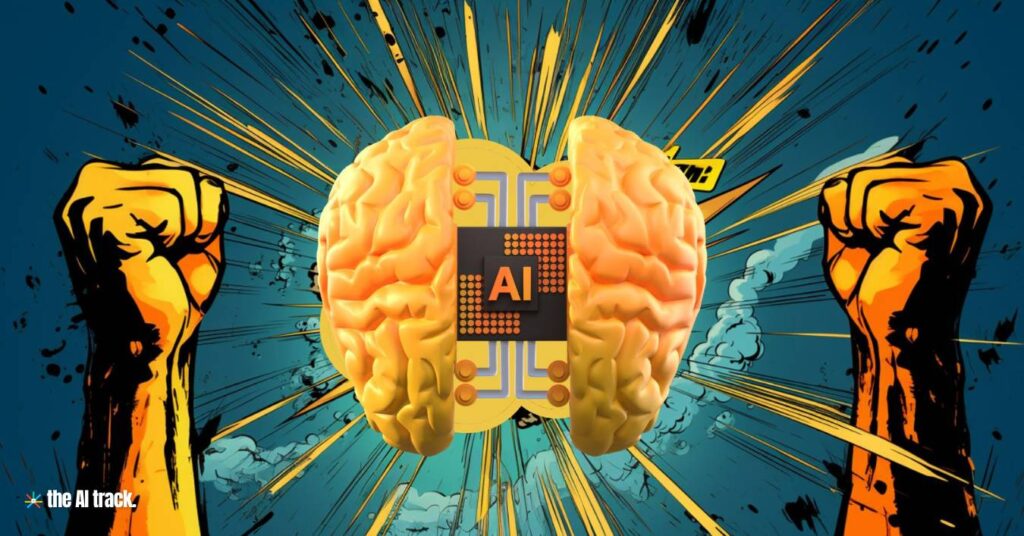Why the Legal Profession Can’t Ignore AI’s Growing Influence
Artificial Intelligence (AI) is reshaping the legal industry by automating mundane tasks, enhancing efficiency, and improving decision-making capabilities. However, its integration comes with significant ethical and workforce-related challenges, particularly around privacy, data security, and the impact on junior roles. Here’s a comprehensive overview of how AI is transforming legal practice.
Jump to Sections

1. Automating Routine Legal Tasks
AI is transforming the legal industry by tackling routine tasks like contract review, legal research, and document preparation. AI-driven litigation analytics tools are also refining case strategies and lowering expenses, allowing law firms to streamline operations traditionally managed by junior staff and paralegals.
- Process Simplification: AI significantly reduces the time spent on tedious tasks, from reviewing documents to analyzing contracts, enabling professionals to prioritize more complex legal work.
- Greater Precision: Machine learning technology enhances the accuracy of legal processes, reducing the potential for mistakes in due diligence and compliance.
Case in Point: In New York, attorney Steven Schwartz faced repercussions when ChatGPT-generated case law turned out to be fictitious, underscoring the need for thorough validation when using AI.
- Error Management: Firms like A&O Shearman utilize tools like “ContractMatrix” to counter AI inaccuracies, ensuring outputs are linked to verified documents to maintain reliability.
The Future is Now: 14 Ways AI is Already Changing Our Lives

AI is no longer restricted to futuristic movies and labs. It has entered the mainstream and become an integral part of our everyday lives. In this article, we’ll highlight 14 areas where AI-powered devices and services are transforming routine activities like commuting, socializing, working, and running a smart home.

2. Impact on Legal Jobs
The legal profession remains divided over AI’s long-term implications for employment. Some believe it will redefine all roles, while others see only a modest impact. It’s the more routine tasks, frequently assigned to junior employees, that are most at risk, although human oversight remains crucial to interpreting AI outcomes.
- Threat of Job Displacement: AI’s ability to handle repetitive work may displace junior roles, though ethical considerations mean human insight will still be essential.
- Cost of AI Adoption: High costs, such as with tools like Microsoft Copilot, could double tech expenses for firms, slowing widespread adoption.
- Emerging Roles: The rise of AI in law has sparked demand for specialists like “legal engineers” and “prompt engineers,” blending legal expertise with tech skills to optimize AI tools.
- Shifting Client Expectations: According to Deloitte, only 6% of corporate clients see current benefits from AI, but over 70% anticipate future cost savings and faster services—highlighting a gap between expectations and current capabilities.
- Efficiency Improvements: A&O Shearman’s implementation of “ContractMatrix” reports 20-30% gains in productivity, illustrating AI’s benefits without drastic staff cuts.

3. AI Legal Teams and Ethical Challenges
Around half of major law firms have established specialized teams to navigate AI’s influence. These teams assess AI’s value, strategize its internal use, and advise clients on related legal issues. Key concerns involve data security, privacy, and ethical challenges like bias and algorithm transparency.
- Ethical Dilemmas: Issues such as algorithmic bias, data privacy, and deep fakes demand cautious AI deployment.
- Custom AI Solutions: Firms like RobinAI focus on training their AI models on internal data to improve accuracy and reduce bias, underscoring the need for customized models in the legal field.
- Human Role in Legal Decisions: Regulatory bodies, including the bar, will likely limit AI’s scope to advisory roles, ensuring AI doesn’t cross into the domain of critical human judgment.
- Data Privacy: Law firms are cautious about AI’s impact on data security. Firms like Ashurst are holding off on tools like Microsoft Copilot until reliable data control measures are in place. Meanwhile, Hogan Lovells has developed AI solutions with built-in privacy features like auto-pseudonymization and encryption.

4. Adoption of Generative AI Tools
Generative AI tools, including Microsoft Copilot and Harvey AI, are slowly making their way into law firms. There’s enthusiasm for their potential, but a degree of skepticism persists, with some warning against overstating their capabilities.
- Innovative Legal Solutions: AI is leading to new offerings like automated contract drafting and online dispute resolution, making legal services more accessible.
- Integrating New AI with Familiar Tools: Some firms, like Baker McKenzie, prefer to incorporate AI enhancements into platforms they already use, such as LexisNexis or Microsoft 365.
- In-House Efficiency: Generative AI can assist internal legal teams by streamlining operations, helping them remain competitive without necessarily reducing staff numbers.
- Realistic Expectations: The initial hype around generative AI is settling into a practical phase, with firms focusing on integrating AI tools responsibly and effectively.
Discover top 30 AI use cases transforming daily life. Learn how AI enhances productivity, creativity, and leisure in every aspect of your day.

5. AI in Legal Education
Law schools are evolving to include AI in their curriculum, equipping future lawyers for a tech-driven legal landscape. However, they stress the ongoing importance of human judgment and critical thinking.
- Training Future Professionals: AI is being incorporated into legal education, bridging the gap between traditional training and the new digital era.
- Courtroom Transparency: After incidents like Steven Schwartz’s, some judges require full disclosure if AI tools were involved in case preparations, fostering accountability.
- Skill Development: Concerns remain that over-reliance on AI could stunt the development of critical skills in young lawyers. Firms must balance AI’s convenience with hands-on experience to ensure comprehensive training.

6. The Future of AI in Law
AI won’t replace lawyers but will significantly alter the landscape of legal practice. By handling repetitive work, AI frees legal professionals to concentrate on strategy, negotiation, and client relationships. Responsible, ethical implementation will be the cornerstone of AI’s success.
- Strategic Focus: As AI takes over administrative work, legal professionals can focus on more complex, value-driven tasks.
- Ethical AI Deployment: Responsible AI use will be critical, ensuring it remains a tool that aids—rather than replaces—the nuanced judgment of lawyers.
- Accessible Legal Aid: AI tools are democratizing access to legal advice, offering low-cost options for those who may not afford traditional services.
- Client Relationships: Despite AI advancements, high-stakes clients often prefer direct interaction with a human attorney, highlighting the enduring importance of the human element.
- Addressing Legal Shortages: As the legal workforce ages, AI can help manage routine tasks, allowing senior professionals to focus on higher-value work, potentially easing future labor shortages.
Discover the fascinating paradox in AI: the gap between awareness and actual usage of ChatGPT among U.S. adults

Why This Matters
AI’s role in the legal field presents a blend of promising opportunities and intricate challenges. Legal professionals must navigate the trade-off between greater efficiency and the risk of job displacement, as well as manage the ethical complexities that come with AI’s use. The ultimate success of AI in law will hinge on its careful, responsible implementation and the sector’s adaptability to new roles and evolving responsibilities.
Key Takeaways
- Efficiency Gains: AI automates repetitive tasks, allowing for higher productivity.
- Job and Ethical Concerns: There are worries about job displacement and ethical challenges.
- Cost and Adoption Barriers: High costs can slow AI adoption, particularly for specialized tools.
- Future Outlook: AI will transform, but not replace, the role of legal professionals.
- Democratizing Legal Support: AI offers opportunities to make legal advice more accessible to the general public.
- New Roles and Client Expectations: AI will create new roles, such as legal engineers, while clients will continue to value human expertise in critical legal matters.
- Balanced Integration for Training: Law firms must ensure young lawyers receive traditional skill-building experiences while leveraging AI for routine tasks.
Sources
- Is AI about to transform the legal profession? | BBC, 19 October 2023
- AI moves along ‘hype cycle’ to make its mark on legal profession | Financial Times
- AI & the future of the legal profession: Is robo-litigation here? | Thomson Reuters
- How Is AI Changing the Legal Profession? | Bloomberg Law
- How Many Legal Jobs Will be Affected by AI? Law Firms Can’t Agree | Law.com, 14 October 2024








